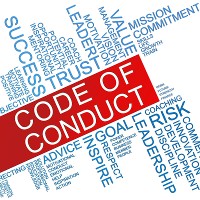The Model Code of Conduct (MCC) is a set of guideline issued by the Election Commission to regulate political parties and candidates prior to elections, to ensure free and fair elections. This is in keeping with Article 324 of the Constitution, which gives th e Election Commission the power to supervise elections to the Parliament and state legislatures. Best school in kullu provides Knowlghe to students regarding the MCC. The MCC is operational from the date that the election schedule is announced till the date that results are announced. Thus, for the general elections this year, the MCC came into force on March 10, 2019, when the election schedule was announced, and will operate till May 23, 2019, when the final results will be announced. Best faculty of LMS shares this information with students during morning assembly and made them for future ready. The MCC was largely followed by all parties in 1962 elections and continued to be followed in subsequent general elections. In 1979 the Election Commission added a section to regulate the ‘party in power’ and prevent it from gaining an unfair advantage at the time of elections. In 2013, the Supreme Court directed the Election Commission to include guidelines regarding election manifestos, which it had included in the MCC for the 2014 general elections. Best school Himachal Pradesh organized programs on MCC to overall development and use their creative minds to get best board results. The MCC is not enforceable by law.IN 2014 the ECI reasoned that the elections are conducted within a very limited time trame, that is, 45 days from the announcement of election schedule. It pointed out that as judicial proceedings typically take time due to delay in presenting proof, it is simply was not feasible to make MCC enforceable by law. The MCC contains provisions dealing with general conduct, meetings, processions, polling day, polling booths, observers, party in power, and election manifestos.
e Election Commission the power to supervise elections to the Parliament and state legislatures. Best school in kullu provides Knowlghe to students regarding the MCC. The MCC is operational from the date that the election schedule is announced till the date that results are announced. Thus, for the general elections this year, the MCC came into force on March 10, 2019, when the election schedule was announced, and will operate till May 23, 2019, when the final results will be announced. Best faculty of LMS shares this information with students during morning assembly and made them for future ready. The MCC was largely followed by all parties in 1962 elections and continued to be followed in subsequent general elections. In 1979 the Election Commission added a section to regulate the ‘party in power’ and prevent it from gaining an unfair advantage at the time of elections. In 2013, the Supreme Court directed the Election Commission to include guidelines regarding election manifestos, which it had included in the MCC for the 2014 general elections. Best school Himachal Pradesh organized programs on MCC to overall development and use their creative minds to get best board results. The MCC is not enforceable by law.IN 2014 the ECI reasoned that the elections are conducted within a very limited time trame, that is, 45 days from the announcement of election schedule. It pointed out that as judicial proceedings typically take time due to delay in presenting proof, it is simply was not feasible to make MCC enforceable by law. The MCC contains provisions dealing with general conduct, meetings, processions, polling day, polling booths, observers, party in power, and election manifestos.
The Committee may set its own standards of player conduct in a Code of Conduct adopted as a Local Rule. If the committee does not set a Code of Conduct, it is restricted in penalizing players for inappropriate conduct to using Rule. The only penalty available for an act that is contrary to the spirit of the game under that Rule is disqualification.
ALAN GEORGE
Class-IX